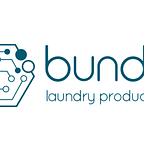4 ways you can leverage RFID technology to reduce linen wastage in the hospitality industry
Linen wastage has been a perennial challenge that the Australian hospitality industry has been grappling to overcome. According to The Guardian, Australians are the second-largest textile consumers in the world, behind the US. Each Australian consumes 27 kg of new apparel each year. However, when items such as bed linen, curtains, and furniture are included, the annual per capita consumption use rises to 39–41 kg a year.
However, just as much as these linen items are being used, these linen items are being disposed of. Australia has the lowest recovery rate of all waste types, with 87.5% of textile waste being sent to landfill. A large chunk of this waste is linen items such as hotel linen sheets, curtains, furniture and upholstery, and uniforms. In New South Wales, bedding, linen sheets, and homeware make up 27% of the textile waste that flows from consumer to waste stream.
Linen loss can be costly for hoteliers. This is why hotels must steer away excessive linen wastage and instead, turn towards laundry solutions that are powered by RFID technology. By doing so, they can help minimise issues with linen wastage because it automatically tracks each linen item, which facilitates more efficient linen utilisation.
Let’s explore 4 ways hoteliers can leverage RFID technology to minimise the wastage of linen in the hospitality industry.
- Enhanced linen lifecycle management
Did you know that implementing an RFID system into your linen management pipeline can help you extend linen longevity by up to 20–30% due to lifecycle records?
RFID technology revolutionises linen management in hotels by enabling precise monitoring of wash cycles for each item. By leveraging a data-driven approach for the hotel’s linen usage, linen managers can proactively replace damaged and worn-out linen that is about to reach the end of their shelf life.
This ensures that only high-quality linen sheets are being used to furnish guest rooms. This also helps to avoid unnecessary acquisitions of new linen items and enables the hotel to improve its cost-saving measures. RFID tags attached to individual linen items also ensure that all linen undergo proper cleaning and disinfection before reuse, maintaining hygiene standards and extending the lifespan of each item.
RFID-powered linen systems enhance visibility for linen managers and housekeepers, allowing them to make quicker decisions on which linen to use. This platform also optimises procurement and restoration and implements a cost-effective linen management strategy. This helps to enhance overall operational efficiency and profitability for the hotel.
2. Reduced linen loss
By integrating RFID technology into hotel linen inventory, hoteliers can significantly reduce the risk of losing valuable items.
As mentioned previously, RFID tags get attached to individual linens. This allows linen managers and housekeepers to gain real-time tracking capabilities for each linen, which minimises the need for costly replacements. This advanced system ensures a consistent stock of linen for guests is readily available while also eliminating time-consuming searches for misplaced items.
RFID tags can also ensure that linen managers can optimise linen utilisation. The ability to precisely locate and monitor each linen item empowers linen managers to maintain tight control over their assets, preventing unnecessary losses, and ensuring a seamless guest experience.
3. Improved housekeeping efficiency
RFID tags help to speed up linen housekeeping as linen managers and housekeepers no longer have to manually count and sort individual linen by their level of cleanliness and condition.
This streamlined process ensures compliance with stringent hygiene standards, enhances the quality of room cleaning, and prevents the use of worn or damaged linens. By optimising time management through leveraging RFID solutions, housekeeping teams can focus on delivering exceptional guest experiences and attending to other essential tasks, ultimately boosting productivity and efficiency.
The real-time data provided by RFID tags empowers housekeepers to make informed decisions, allocate resources effectively, and maintain a well-organised linen inventory.
4. Better cost savings
In the hospitality industry, RFID technology has a significant impact on improving the overall effectiveness of inventory management. In this case, RFID assists hotels in reducing wastage, avoiding situations where there is too much or too little linen supply. This is instrumental in cost savings.
Hotels that embrace RFID-powered solutions can expect to see a positive impact on their bottom line through reduced linen replacement costs, optimised inventory management, and streamlined operational processes.
By leveraging this transformative technology, hotels can optimise their linen management practices and strengthen their financial sustainability in the long run.
Invest in RFID technology to reduce linen wastage in the hospitality industry
Laundry solutions that are integrated with RFID technology can be invaluable to hotels that seek to reduce their linen expenditure and enhance their efficiency.
Thus, the application of RFID solutions for improving the linen lifecycle, minimising loss, optimising housekeeping operations, and enhancing cost savings can help hotels revolutionise their linen management system and get the maximum benefits. RFID identifies and tracks objects in real-time and accurately, thus allowing for better decision-making, efficient operation, and cost control.
In light of the changes affecting the hospitality industry, hoteliers should embrace an RFID-based laundry asset management system to address linen wastage and optimise their business’s logistics while achieving a cost-saving strategy.
